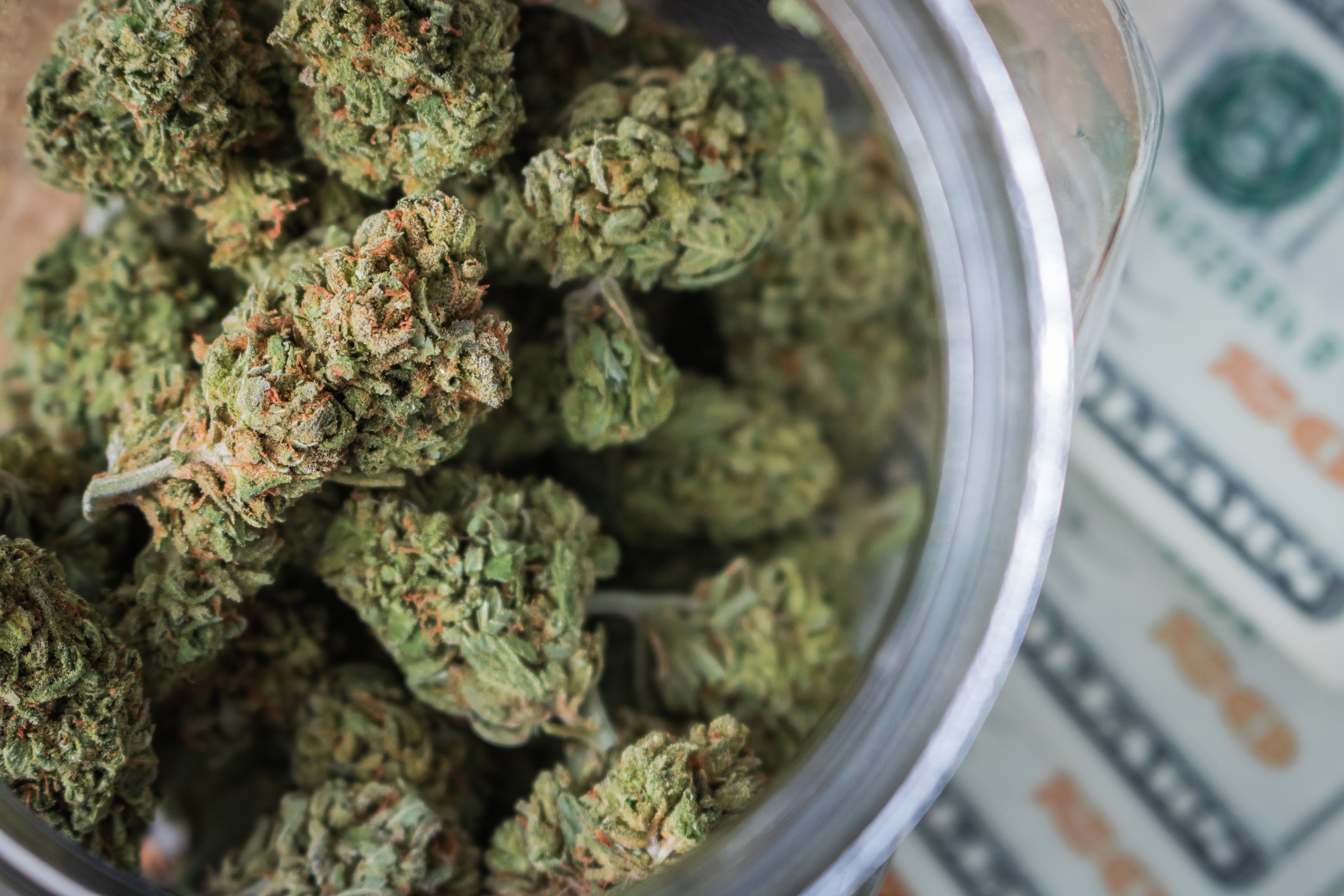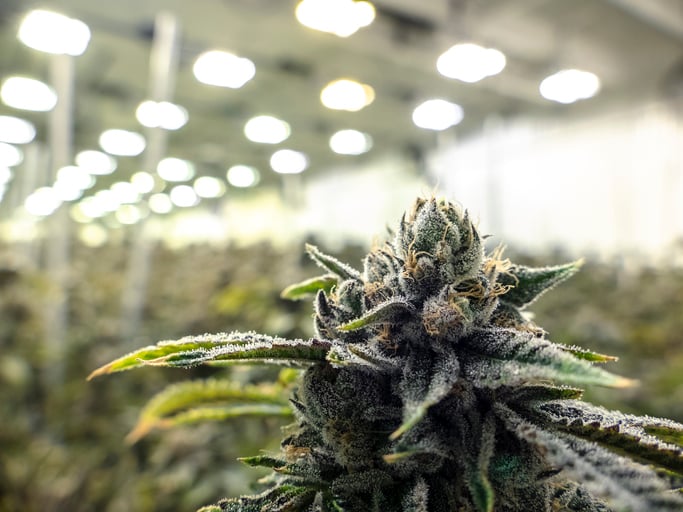Few industries offer as much long-term promise as legal cannabis. After worldwide sales of legal weed more than tripled between 2014 and 2018, independent researchers Arcview Market Research and BDS Analytics have forecast a near-quadrupling in global sales through 2024 to north of $40 billion. Beyond that, Wall Street sees pot sales jumping as high as $200 billion by the end of the next decade.
However, things have been anything but green for marijuana stocks of late. Over the trailing year, nearly every cannabis stock has lost a double-digit percentage on a trailing-12-month basis, with the Horizons Marijuana Life Sciences ETF, the first exchange-traded fund focused on cannabis, losing about half of its value since mid-October 2018.

Image source: Getty Images.
There are a bevy of issues adversely impacting pot stocks right now. In Canada, supply issues have led to dried flower shortages since day one of legalization on Oct. 17, 2018. Meanwhile, in the U.S., we've seen oversupply and exceptionally high tax rates in certain states wreak havoc on legalized sales. In California, for example, cannabis sales actually declined by $500 million in 2018 from the previous year despite opening its doors to recreational weed sales.
But none of these issues compares to the time bomb currently building on the balance sheets of marijuana stocks: goodwill.
There's absolutely nothing good about pot stock goodwill
In its simplest form, goodwill is nothing more than the premium one company pays to acquire another, above and beyond tangible assets. We'd often expect there to be some amount of goodwill recorded by a purchaser since it's commonplace for an acquiring company to sweeten the deal, so to speak, in order to get the smaller company's board to agree to a buyout. In turn, the acquiring company will develop the assets, and monetize any patents, of the company it purchases, eventually aiming to fully recoup its goodwill.
With the marijuana industry expected to grow at a rapid clip, North American pot stocks have aggressively been buying smaller businesses in order to boost production capacity, broaden their portfolio offerings, or expand their networks. But the reality is that they have not done a very good job of determining a reasonable value for these purchases and have, in my view, been grossly overpaying for their acquisitions. As a result, we've witnessed goodwill soar for a number of cannabis companies.

Image source: Getty Images.
Aurora Cannabis (ACB 2.96%), for example, has made more than a dozen acquisitions over the past three years. Every significant deal has involved Aurora claiming at least half, if not close to 80%, of the value of the deal as goodwill. This includes Aurora's 2.64 billion Canadian dollar purchase of MedReleaf, of which CA$2 billion has been declared as goodwill.
The same can be said for Canopy Growth (CGC +0.46%) and Aphria (APHA +0.00%). Canopy, the world's largest marijuana stock by market cap, ended the most recent quarter with CA$1.93 billion in goodwill. Meanwhile, Aphria's fourth quarter revealed CA$669.8 million in goodwill, much of which is tied to its 2018 purchase of Nuuvera.
From these three marijuana stocks, plus Tilray and its $155 million in goodwill from the purchase of Manitoba Harvest, the industry has racked up more than $4.5 billion in goodwill (when converted to U.S. dollars from Canadian). I repeat, four of the biggest marijuana growers have more than $4.5 billion in combined goodwill on their balance sheets.
It's quite possible that Aurora Cannabis and Canopy Growth will struggle to recoup the value of their goodwill, resulting in both businesses taking substantial future writedowns. We've already seen Aphria take a CA$50 million writedown on the value of its Latin American assets, and I wouldn't discount the possibility of additional writedowns.

Image source: Getty Images.
Cannabis goodwill may soon exceed $10 billion
But the reality is that this $4.5 billion in goodwill may be just the beginning. That's because a number of megadeals are waiting in the wings to be completed.
Although this isn't a complete list, here are some notable deals that will likely close within the next six months:
- MedMen Enterprises' purchase of PharmaCann for $682 million, when announced.
- Cresco Labs' (CRLBF +0.00%) acquisition of Origin House (ORHOF +0.00%) for CA$1.1 billion, when announced.
- Curaleaf Holdings' purchase of Cura Partners for $949 million, and Grassroots for about $875 million, when announced.
- Harvest Health and Recreation's acquisition of privately held Verano Holdings for $850 million, when announced.
I'd venture a guess that each and every one of these deals is going to involve a hefty amount of goodwill recognition. Origin House, for instance, ended June with CA$258.8 million in total assets, of which CA$83 million was goodwill and CA$60.2 million was intangible assets. This suggests that Cresco's purchase of Origin House will likely result in significant goodwill being recognized on its balance sheet.
Considering that pretty much every large marijuana acquisition has resulted in 50% or more of the value of the deal being written off as goodwill, these five deals here (remember, two are from Curaleaf) should be responsible for anywhere from $2.1 billion to $3.5 billion in added goodwill.
Add up the other, smaller deals that have been completed or are still in the works, as well as the possibility that Canopy's multibillion-dollar deal to buy Acreage Holdings could eventually go through, and $10 billion in aggregate goodwill for pure-play pot stocks is a very real possibility.
This goodwill is a ticking time bomb on the nascent industry's balance sheet, and investors would be wise to expect an explosion of writedowns sooner rather than later.








